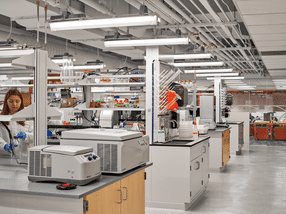Majority of German consumers believe that animal farming is the cause of antimicrobial resistance
From a scientific viewpoint, action needs to be taken in both human and veterinary medicine
In the public discussion, animal farming and its increased use of veterinary drugs are largely seen as the causes of for the increase in antimicrobial resistance. Does this picture painted by the media correspond with the perception of the public? In a representative survey, the Federal Institute for Risk Assessment (BfR) has established what people in German actually know about the occurrence of pathogenic strains of bacteria and about resistance to antibiotics. According to a recent representative survey conducted by the BfR, more than half of the German population believe that antimicrobial resistance is most likely caused by animal farming. However, resistance to antibiotics affects human medicine as much as veterinary medicine and agriculture, meaning that the challenges can be overcome only through a joint effort. "Whereas the large majority of consumers has heard of bacteria that are resistant to antibiotics, most consumers do not think that such germs exist in their own household", explained Professor Dr Dr Andreas Hensel, President of the BfR at the forum "The challenge of antimicrobial resistance - a holistic analysis and the latest insights into risk perception". Organised as part of the "International Green Week", the forum was held in Berlin on 22 January 2015. "The population generally does not associate pathogenic bacteria so much with their own household but rather with public places and hospitals as well as animal facilities." The BfR President concluded that a considerable amount of educational work remained to be done to ensure that consumers could better protect themselves.
To answer the question how German consumers see the problem of antimicrobial resistance, the BfR conducted a representative flash survey. According to this survey, the vast majority of German consumers are familiar with antimicrobial resistance, and the issue is perceived to be more important than other consumer topics. 82% of respondents said they had heard of antimicrobial resistance, and 64% of consumers are concerned about it. Although the problem is recognised by large parts of the population, only a minority of just under 20% thinks it is likely that they will come into contact with pathogens in their own household. This means that a large percentage of respondents do not act on the assumption that they have resistant bacteria in their own household. In the view of respondents (59 %), they are much more likely to come into contact with pathogens in public places (e.g. public transport). 90 % of respondents and hence an overwhelming majority said they knew how to p rotect themselves from pathogenic bacteria in their own household. Frequent hand washing (39%), observing the rules of hygiene (35 %), using disinfectants (34 %) and thorough cleaning (31%) were most often mentioned in this context.
The majority of respondents (53%) identify the use of antibiotics in animal farming as the cause for the development and spread of antimicrobial resistance. Where respondents do think that the use of antibiotics in humans is the cause of antimicrobial resistance, they most often attribute it to unwarranted prescription by doctors (43%), with one third surmising that incorrect use by patients themselves may be responsible.
The results show that the population has great awareness of the problem of the development and spread of antimicrobial resistance in the population. The German-speaking population predominantly believes that animal farming is responsible for this; only one third of respondents mentioned human medicine as the cause. Only few respondents thought it was possible to come into contact with bacteria that are resistant to antibiotics in their own household.
Most read news
Organizations
Other news from the department business & finance

Get the life science industry in your inbox
From now on, don't miss a thing: Our newsletter for biotechnology, pharma and life sciences brings you up to date every Tuesday and Thursday. The latest industry news, product highlights and innovations - compact and easy to understand in your inbox. Researched by us so you don't have to.
























































